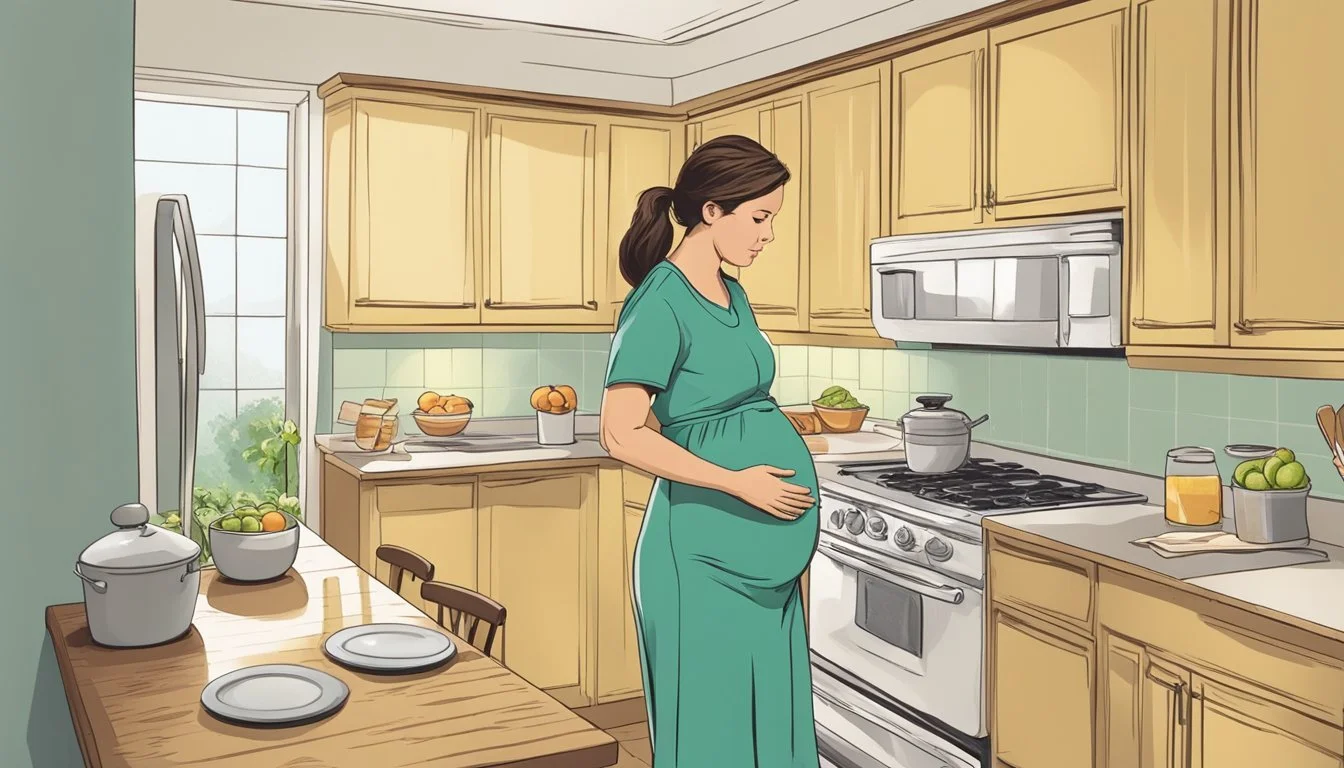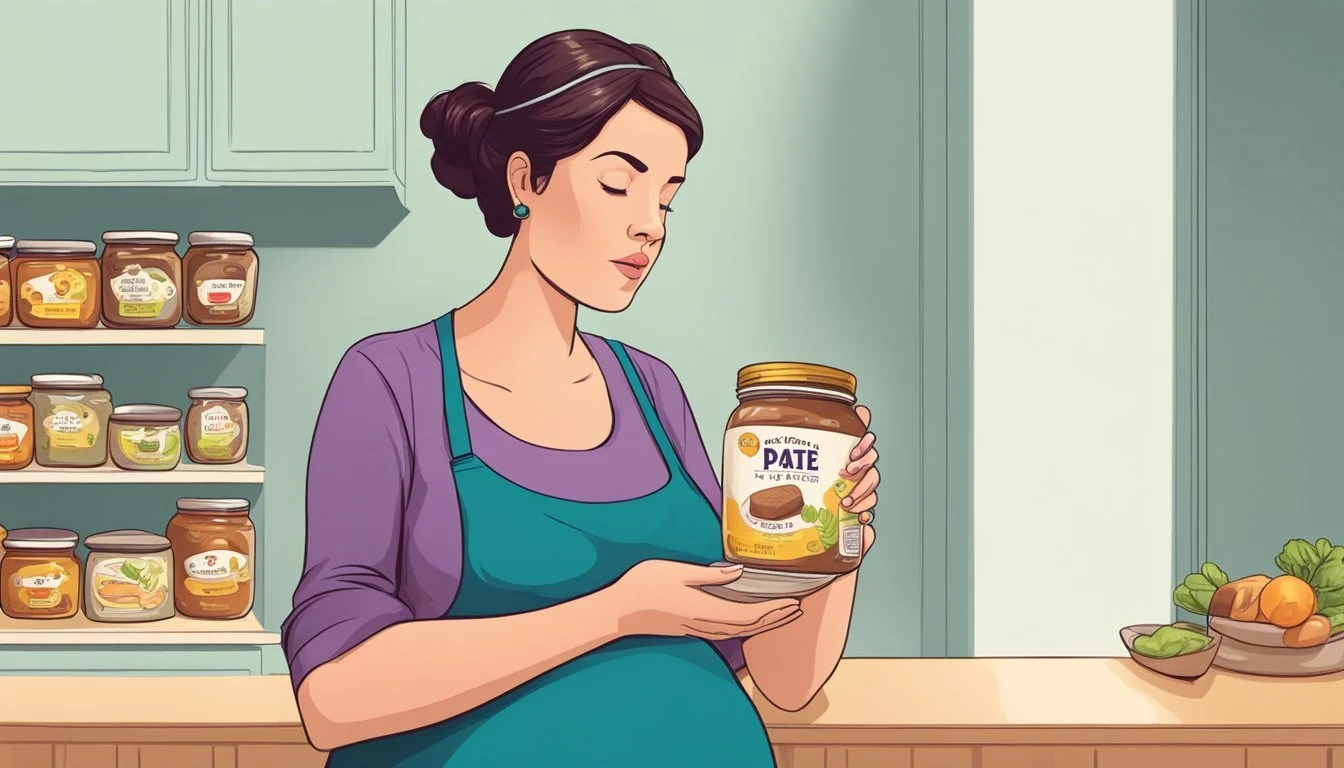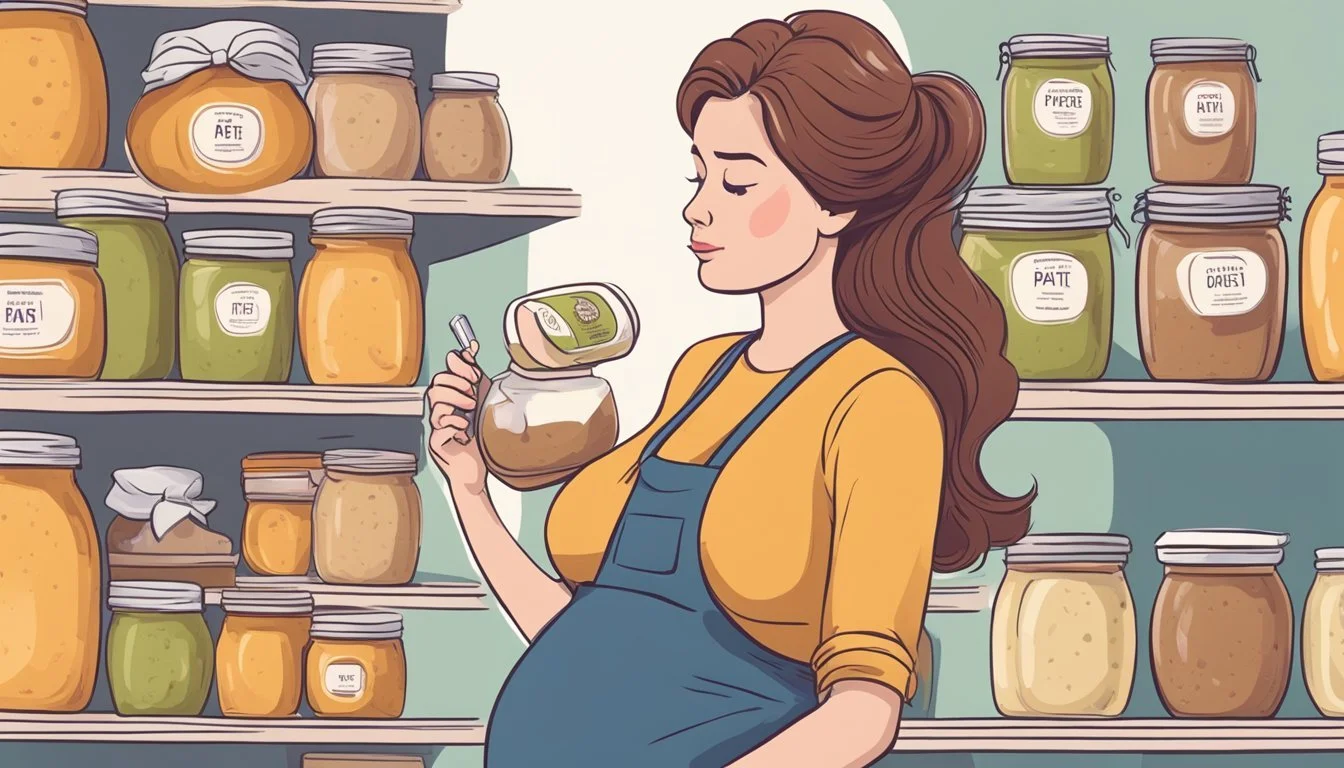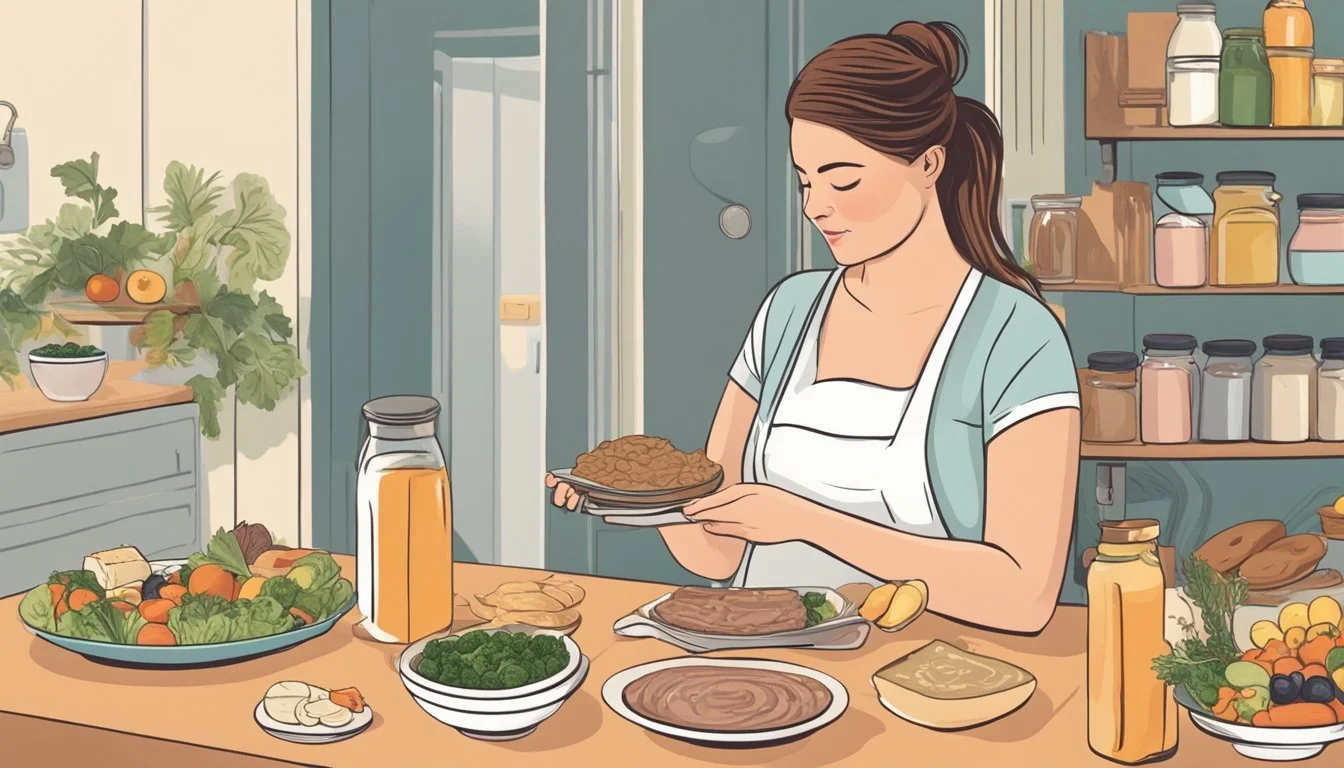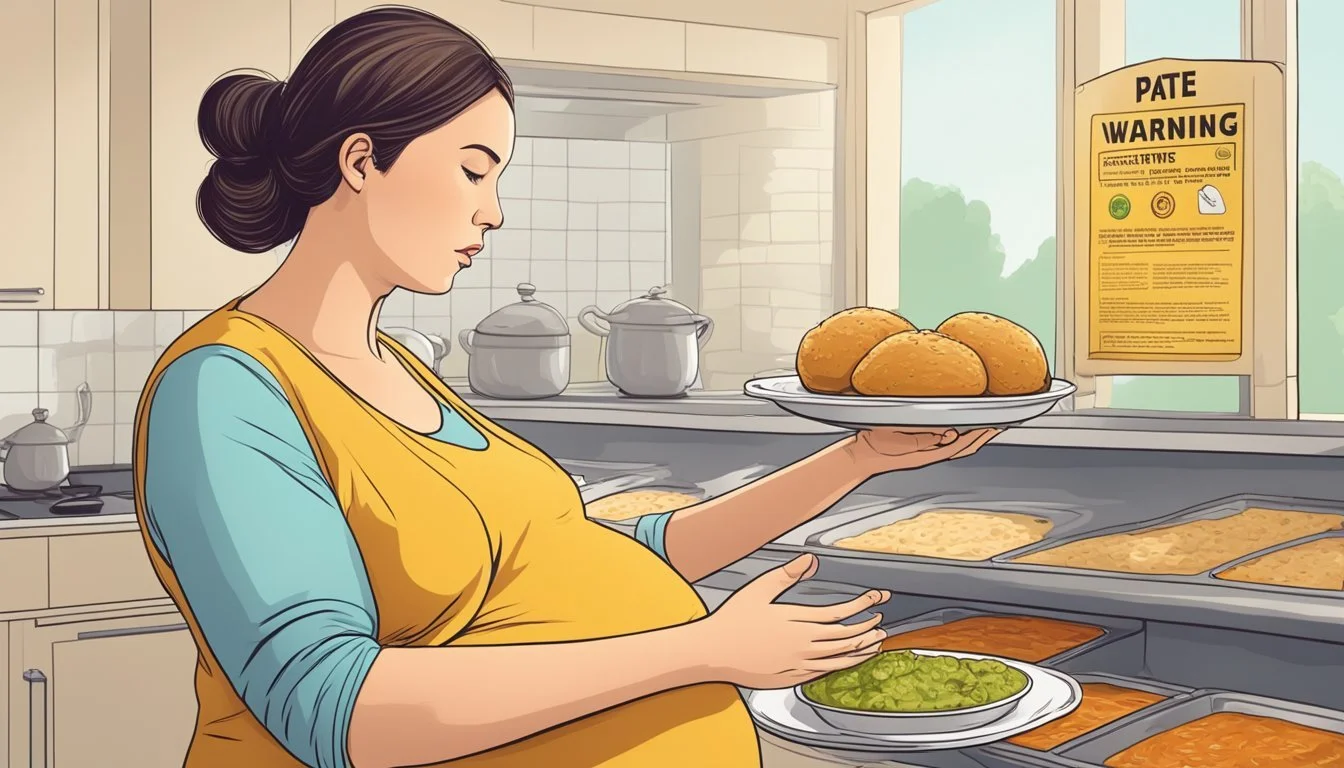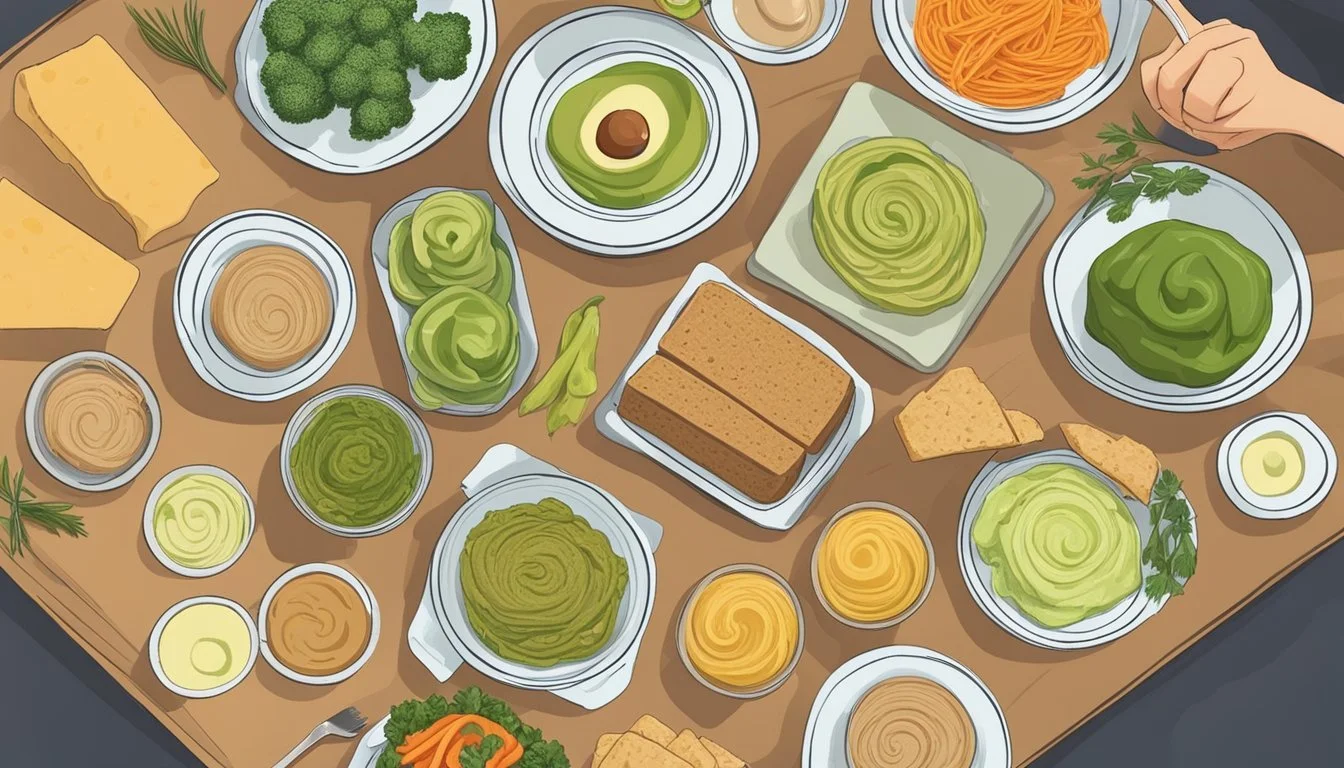Can Pregnant Women Eat Pâté?
Understanding the Risks and Guidelines
When it comes to dietary restrictions during pregnancy, pâté often surfaces as a topic of concern due to food safety considerations. Pâté, a smooth spreadable mixture made from either meat, fish, or vegetables, is traditionally enjoyed as a delicacy. However, pregnant women are advised to exercise caution with certain types of pâté because they may pose a health risk. The primary concern with consuming pâté during pregnancy stems from the potential presence of Listeria monocytogenes, a bacterium that can lead to listeriosis, a serious infection that's particularly hazardous during pregnancy.
Refrigerated meat-based pâtés, including those made from liver, have been singled out as a higher risk because of their propensity to harbor Listeria. The risks associated with listeriosis include miscarriage, stillbirth, and severe illness in newborns. Pregnant women have a heightened susceptibility to listeriosis, making it critical to avoid foods that could potentially contain the bacteria. While some sources might suggest that certain types of pâté, such as vegetarian or canned varieties, are safe for pregnant women, it is important to assess all available information and err on the side of caution.
Given that the stakes are high, medical experts generally recommend that pregnant women avoid all types of refrigerated pâté. Canned or shelf-stable pâté that is properly processed and packaged, and as such does not require refrigeration until after it is opened, can often be considered a safer option. Nonetheless, consulting with a healthcare provider for personalized advice and up-to-date guidelines is always the best course of action for expectant mothers navigating dietary choices.
Understanding Pâté
Pâté is a versatile dish that comes in various forms, each carrying distinct flavors and ingredients. The understanding of its composition is essential when considering its suitability for different dietary needs, particularly for pregnant women.
What Is Pâté?
Pâté is a mixture of ground meat and fat minced into a spreadable paste. Often, it includes additional elements like herbs, spices, and wine. While liver is a traditional base for many pâtés, offering a rich, savory flavor, the term "pâté" can apply to a broad range of spreads that may not necessarily contain liver or even any meat at all.
Types of Pâté
Meat-Based Pâté:
Liver Pâté: Normally made from pork, beef, or poultry liver; regarded for its creamy texture and intense taste.
Non-Liver Meat Pâté: Can be created from a variety of meats such as game or pork without the inclusion of liver.
Vegetarian and Seafood Variations:
Vegetable Pâté: Utilizes ingredients like mushrooms, legumes, and assorted vegetables seasoned and blended into a spread.
Fish Pâté: Often includes smoked or cooked fish, contributing a lighter and fresher taste compared to meat pâtés.
Vegetarian Pâté: Designed to imitate the consistency of traditional pâté, this variation omits meat in favor of ingredients like nuts and beans.
Through understanding these types, consumers can make informed decisions on what variants may align with their dietary preferences and restrictions, especially during pregnancy.
Food Safety During Pregnancy
During pregnancy, a person's susceptibility to foodborne illnesses increases, making food safety a critical concern. Risks associated with Listeria and other foodborne pathogens must be carefully managed to ensure the health of both the pregnant individual and the developing fetus.
Listeria and Pregnancy
Listeria, a bacterium found in soil and water, can contaminate various foods, from vegetables to processed products. Pregnant women need to be particularly cautious because they are up to 20 times more likely to contract listeriosis, an infection caused by Listeria. Listeriosis can result in severe complications for the mother and the unborn child, including miscarriage, stillbirth, or severe illness in the newborn.
Foods to Avoid:
Unpasteurized milk and dairy products
Soft cheeses (such as feta, brie, and blue cheese)
Refrigerated pâtés or meat spreads
Safe Alternatives:
Dairy products labeled as pasteurized
Hard cheeses
Canned pâtés or meat spreads
Risks of Food Poisoning
Food poisoning represents a significant threat during pregnancy, not just from Listeria, but a range of pathogens, including Salmonella, Toxoplasma, and E. coli. Pregnant individuals should avoid raw or undercooked meat, eggs, and seafood, as these can harbor harmful bacteria. Additionally, unwashed fruits and vegetables can be a source of contamination.
Preventative Measures:
Cook meat, poultry, and eggs thoroughly
Wash fruits and vegetables before consumption
Practice good kitchen hygiene
Temperature Guidelines for Cooking:
Poultry: 165°F
Whole cuts of beef, veal, lamb, pork: 145°F (rest for 3 minutes)
Ground meats: 160°F
By adhering to food safety guidelines and avoiding high-risk foods, pregnant women can significantly reduce the risk of foodborne illness. It is vital to maintain these practices throughout pregnancy to support a healthy term and protect the infant from potential health issues.
Nutrition and Pregnancy Diet
During pregnancy, ensuring a nutritious diet that supports both the mother and the developing fetus is paramount. Pregnant women need to be aware of both the essential nutrients required and the foods that are best avoided for the safety of their pregnancy.
Essential Vitamins and Minerals
Pregnant women require a well-rounded intake of vitamins and minerals to support fetal development and their own health. Vitamin A is crucial for fetal growth and vision development, but excessive amounts can be harmful. It is important for individuals to consult with a nutritionist to determine the right balance. Iron is another key mineral that pregnant women need in increased amounts to accommodate the higher blood volume and to support fetal iron stores. Iron deficiency can lead to anemia, increasing the risk during childbirth.
Here is a brief list of essential nutrients and their significance:
Folic Acid: Crucial for preventing neural tube defects.
Calcium: Important for building strong bones and teeth.
Vitamin D: Supports immune function and bone health.
DHA: A type of omega-3 fatty acid important for brain development.
Foods to Avoid
Certain foods pose risks during pregnancy due to the potential presence of bacteria and high levels of certain substances. Pâté, for instance, is one such food that pregnant women are advised to avoid, especially if it's meat-based or refrigerated, as it may contain high levels of Listeria bacteria. In addition, pâtés often contain liver, which is high in Vitamin A; while Vitamin A is essential, too much can be toxic and may cause birth defects. The focus should be on avoiding:
Meat-based pâtés
Unpasteurized dairy products
High-mercury fish
Raw or undercooked meats
Pregnancy diets should be aligned with the latest guidelines, and any concerns about what's safe to eat should be discussed with a healthcare professional.
Pâté and Health Risks
Pregnant women need to be aware of the potential health risks associated with consuming pâté, which include listeria contamination and excessive vitamin A intake.
Pâté and Listeria Concerns
Listeria monocytogenes is a bacterium found in refrigerated, ready-to-eat foods, and it poses significant health risks during pregnancy. Pâté, especially those made from meat, fish, or vegetables and sold refrigerated, may harbor this bacterium. Listeria exposure during pregnancy can lead to serious outcomes such as miscarriage, stillbirth, or premature birth.
Refrigerated pâté: Possibly high in Listeria.
Canned pâté: Generally considered safe due to the sterilization process.
It is generally recommended that pregnant women avoid refrigerated pâtés to reduce the risk of listeriosis.
Vitamin A and Pregnancy
Liver pâté contains high levels of retinol, the animal form of vitamin A. While vitamin A is crucial for fetal development, excessive amounts can lead to birth defects. Pregnant women are advised to limit their intake of liver products to mitigate the risk.
Recommended intake: Pregnant women should be cautious and limit vitamin A, particularly from animal sources.
Liver pâté: Recognized for high vitamin A content, which may exceed daily recommended limits.
The safest course of action for pregnant women is to check with healthcare providers regarding vitamin A intake and to consider alternatives to liver pâté during pregnancy.
Pâté Alternatives for Pregnant Women
When pregnant, women need to avoid certain foods that may harbor harmful bacteria. Fortunately, there are safe and enjoyable alternatives to traditional pâtés.
Vegetarian and Vegan Options
For those seeking vegetarian or vegan options, plant-based pâtés are a great choice. These are usually made from ingredients like chickpeas, lentils, mushrooms, and a variety of beans. Shelf-stable vegetarian pâtés are commonly available in health food stores. Brands such as Tartex and Granovita offer a range of vegan pâtés that have been heat-treated and are considered safe for pregnant women.
Vegan Pâté Ingredients:
Chickpeas
Lentils
Mushrooms
Beans
It's important for pregnant women to check that the products are labeled as pasteurized or heat-treated, as this process eliminates harmful bacteria.
Safe Consumption Practices
When it comes to consuming pâté while pregnant, safety is paramount. Pregnant women should only consider shelf-stable or canned pâtés that have undergone pasteurization or a similar heat-treatment process to reduce the risk of listeriosis, a serious infection caused by the bacteria Listeria. Pasteurized and shelf-stable pâté options are commercially available and can safely be enjoyed as part of a pregnancy diet.
Safe Pâté Characteristics:
Pasteurized
Canned
Shelf-stable
These pâtés are suitable for consumption as they have been processed to kill potential bacteria. Pregnant women should always read labels carefully to ensure that any pâté product they choose is appropriate for their dietary needs during pregnancy.
Consulting Health Professionals
When considering the consumption of pâté during pregnancy, it is critical for expectant mothers to consult with healthcare professionals. They should seek guidance to understand potential risks and receive personalized advice for their situation.
When to Contact a Doctor
Expectant mothers should contact their doctor or midwife if they have unknowingly consumed pâté and are experiencing any flu-like symptoms, as these could indicate listeriosis, a foodborne illness. Symptoms might include fever, muscle aches, and nausea, which warrant immediate medical attention due to possible risk to the baby. As a precaution:
Immediately contact a healthcare provider if there are any signs of illness after consuming pâté.
Discuss dietary concerns during routine prenatal visits to prevent any potential risks.
Seeking Expert Advice
Expert advice from a doctor or midwife is essential to understand the risks associated with eating pâté during pregnancy, including exposure to listeria. Listeriosis can be particularly dangerous during pregnancy, as it poses a risk to both the mother and the unborn baby, albeit the risk to you and your baby is very low if proper precautions are taken. To ensure safety:
Consult with a healthcare professional before making dietary decisions involving potential listeria sources.
Heed the advice of experts to understand how to properly incorporate or avoid certain foods in a prenatal diet.
Healthcare providers can offer recommendations tailored to an individual's health history and pregnancy, keeping both the mother's and baby's well-being in mind. It's always better to err on the side of caution and seek professional guidance.
Practical Tips for Pregnant Women
When considering the consumption of pâté during pregnancy, pregnant women should pay close attention to how pâté is handled and stored, and be aware of measures to prevent Listeria infection.
Handling and Storing Pâté
Proper storage of pâté can significantly reduce the risk of Listeria contamination. The Centers for Disease Control and Prevention (CDC) emphasizes the importance of refrigeration for food safety. Pregnant women should:
Store pâté at or below 40°F (4°C): The fridge should be set to this temperature to inhibit bacterial growth.
Consume pâté promptly: Any opened or homemade pâté should be eaten within a couple of days.
Preventing Listeria Infection
Listeriosis is a concern for pregnant women due to their altered immune system's response to infection. Pâté, unfortunately, is known to sometimes contain higher levels of Listeria bacteria than other foods. To help prevent Listeria infection:
Opt for pasteurized products: Pasteurization is an effective method for killing bacteria in foods.
Avoid cross-contamination: Keep pâté away from other foods in the fridge to prevent contaminated food from spreading bacteria.
Practice good hygiene: Washing hands, utensils, and surfaces before and after handling pâté helps maintain food safety.
Pregnant women are advised by health experts, including the Mayo Clinic, to avoid any unpasteurized products and to be cautious with foods that are prone to Listeria contamination.

